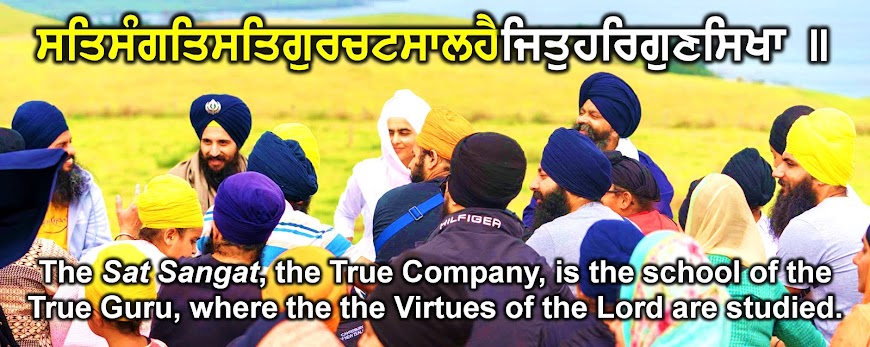"Sangraand" (ਸੰਗਰਾਂਦ) refers to the first day of a month. The word comes from the Sanskrit word "Sakraant", which means that sun is moving from one position to another. The Bikrami Calendar used in the Indian subcontinent is based on the position of sun and the corresponding twelve months. So, the starting day of each month is when sun moves from its previous place to its new place.
In Hinduism, Sangraand is a day to worship the Sun, receive good omens, and avoid bad omens or bad luck. People in India consider certain days based
on the sun or moon as sacred and on those day performed certain religious
rituals and chants in the hope of receiving certain rewards. This is clearly not Gurmat (the Guru's Way). Gurbani teaches:
ਥਿਤੀ ਵਾਰ ਸਭਿ ਸਬਦਿ ਸੁਹਾਏ ॥All the days in accordance to the moon, and the days of the week are beautiful, when one contemplates (and attaches themselves to) the Guru's Shabad.ਸਤਿਗੁਰੁ ਸੇਵੇ ਤਾ ਫਲੁ ਪਾਏ ॥One obtains the (great) reward (of this human life) when one serves the True Guru.ਥਿਤੀ ਵਾਰ ਸਭਿ ਆਵਹਿ ਜਾਹਿ ॥These days in accordance to the moon and days of the week all come and go.ਗੁਰ ਸਬਦੁ ਨਿਹਚਲੁ ਸਦਾ ਸਚਿ ਸਮਾਹਿ ॥But the Word of the Guru's Shabad is only eternal and unchanging. Through it, one merges in the True Lord.ਥਿਤੀ ਵਾਰ ਤਾ ਜਾ ਸਚਿ ਰਾਤੇ ॥These days are only auspicious when one is coloured in the love of the Eternal Lord.ਬਿਨੁ ਨਾਵੈ ਸਭਿ ਭਰਮਹਿ ਕਾਚੇ ॥੭॥Those who are without the Divine-Name wander in delusion due to be spiritually weak. ||7||(Bilaaval M:3, Ang 842)
Some people, influenced by Hinduism, may think coming to the Gurdwara, offering Parshaad, doing Seva or reading a certain Bani on the day of Sangraand will bring more reward compared to another day, and help to avoid back luck. However this is not in accordance to Gurmat. But does that mean, Sangraand has no place in Sikhi and we should even avoid mentioning the word? No.
Before calendars, people based their understanding of time on nature, and lived their day to day lives based on this understanding. People didn't exactly have watches, phones or modern technology to help them. So they used full-moon days (pooran-mashee), no moon days (massiya), or the first day of the new month (sangraand), which are all based on the moon and sun, to live their day to day lives. It was practical for Sikhs in the past, to get the Sangat or the Panth to get together for a programme or event on these days. For those who could not make it to the Sangat or audience with the Guru every day, they would go at least once a month, or twice or three times a month, so that they had opportunity to be exposed to the Guru's teachings.
On the day of Sangraand, the Bani of 'Barah Maha' is read and explained in the Sangat. Barah Maha, means twelve months. There are two Banis in Sri Guru Granth Sahib Ji with this title. One is written by Guru Nanak Dev Ji in Raag Tukhaari, and the other is written by Guru Arjan Dev Ji in Raag Maajh. Just as Sangraand marks the moving of the sun's position, the Bani of Barah Maha reminds us that we should be spiritually moving forward in our life through Naam Simran and Gurbani. In Gurmat, Sangraand is not about celebrating a special or sacred day or month in hope of good luck, but rather a day used an opportunity to celebrate the Guru, and bring Gurbani into our daily lives in the hope of spiritual growth.























